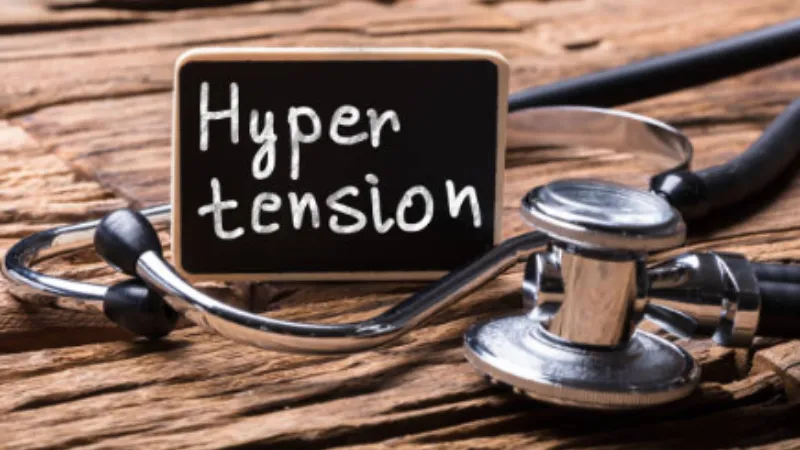
Tips for managing hypertension: Changing one’s lifestyle can significantly lower the risk of developing heart problems associated with hypertension and control high blood pressure. Discover the top 7 lifestyle changes that can help manage high blood pressure by reading on.
Read More – Try These 3 Easy Exercises To Help With Your Back And Chest Pain
High blood pressure, or hypertension, is a major sign of cardiovascular health and is closely linked to heart health. Known as the “silent killer,” hypertension can cause undetected artery damage and raise the risk of heart disease, stroke, and other major health issues for years without causing symptoms. This article provides additional information regarding this fatal disorder and the different lifestyle modifications that can help manage its symptoms, as provided by Dr. Anjan Siotia, Director, Department of Cardiology, BM Birla Heart Hospital.
Understanding The Relationship Between Heart Health and Hypertension
Heart health and hypertension are intricately related. One major risk factor for many heart-related issues is high blood pressure. An elevated blood pressure puts a great deal of strain on the walls of your arteries, damaging them and making the heart work harder. This additional stress over time may result in serious problems like heart disease, heart attacks, and strokes.
Read More – Benefits Of Almonds For Women: Do Almonds Lower Blood Sugar And Diabetes?
Because hypertension is the most frequent heart ailment worldwide, it is expected to be the most common comorbidity among cardiac patients. Depending on the national definition of high blood pressure, around 50% of people worldwide suffer from hypertension.
Hypertension Symptoms: Indices of Elevated Blood Pressure
The issue with hypertension is that it goes untreated and is frequently misdiagnosed. In the context of hypertension, the “rule of halves” is frequently invoked. For instance, half of the world’s population may not even be aware that they have hypertension if 50% of them had never had their blood pressure measured.
Just half of the other half who are aware of their hypertension and have had their blood pressure measured really take medication for it. Moreover, only half of all medication users will truly have adequate control over their blood pressure.
This indicates that only a relatively tiny percentage of hypertension patients truly have effective medication-assisted blood pressure management. The remainder either take insufficient dosages or none at all. This is a serious issue related to hypertension.
How To Naturally Control High Blood Pressure At Home
Heart attacks and strokes become commonplace as a result of insufficient treatment for hypertension. Thus, early detection and consistent blood pressure monitoring are essential for managing hypertension. See some additional advice on how to manage high blood pressure at home and maintain heart health:
Frequent Examinations
Encouraging people to follow their medicine as directed and have regular blood pressure checks is crucial. To guarantee proper control, blood pressure checks must be done on a regular basis even after starting medication. It could be necessary to make medication adjustments if blood pressure is not sufficiently regulated.
Changes in Lifestyle to Manage High Blood Pressure
Proactive lifestyle changes and routine blood pressure monitoring are essential for preventing these consequences and ultimately maintaining a stronger, healthier body over time. Making changes to one’s lifestyle is essential for controlling hypertension and advancing heart health. Here are some lifestyle changes you should think about implementing:
- Reducing sodium consumption and eating a balanced diet full of fruits, vegetables, lean meats, and whole grains can both help control blood pressure.
- Frequent physical activity
- Keeping a healthy weight
- Reducing alcohol intake and giving up smoking
- Maintain a regular sleep schedule.
- These are also some of the most simple, yet crucial, actions you may take to lower your risk of hypertension.
Furthermore, deep breathing exercises, yoga, and meditation are stress-reduction methods that might lessen the negative effects of hypertension on the heart. A thorough strategy to managing hypertension should include going to the doctor on a regular basis and taking prescription drugs as directed. This will ensure long-term heart health and general well-being.


